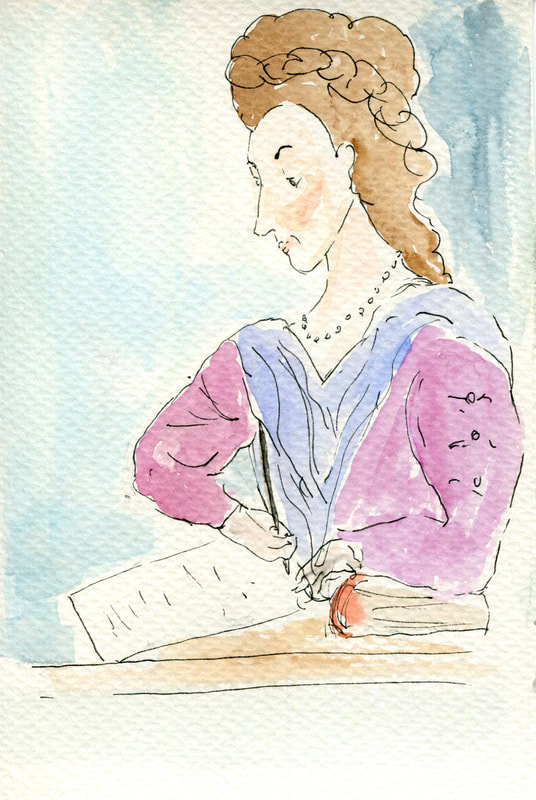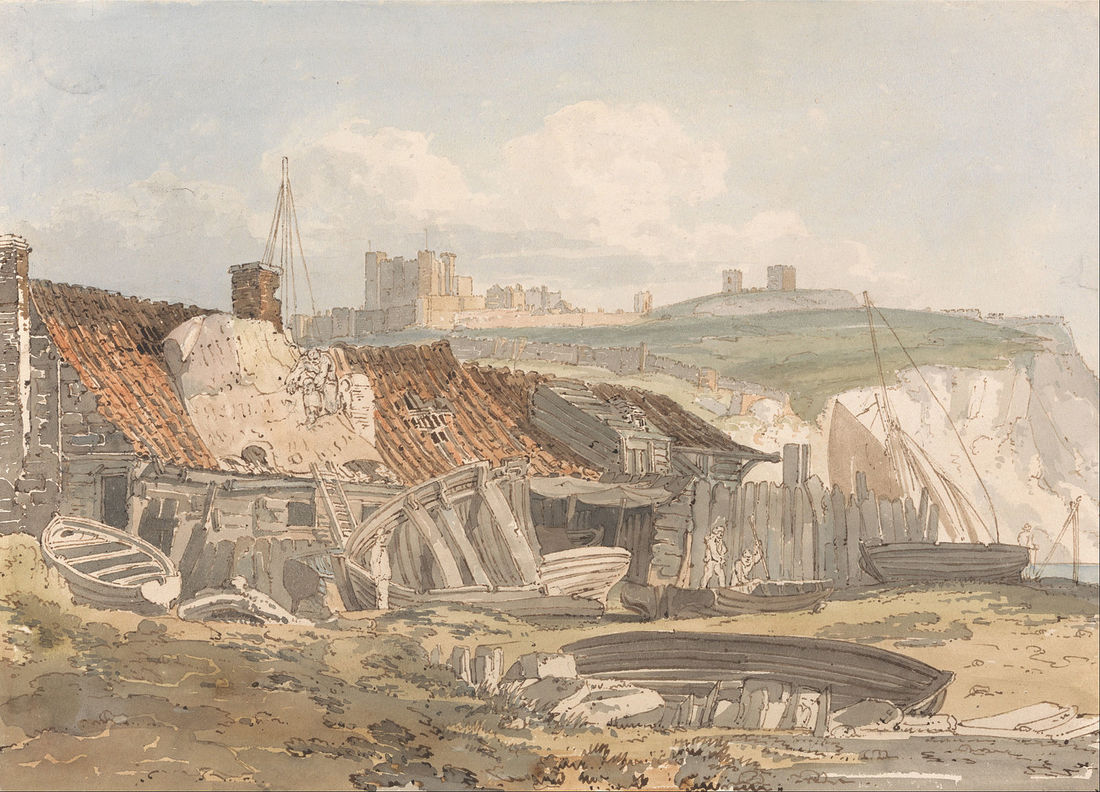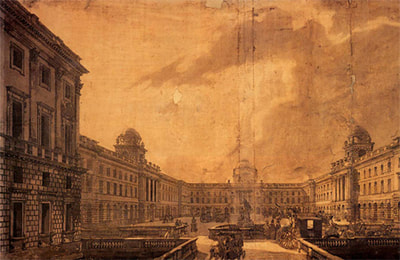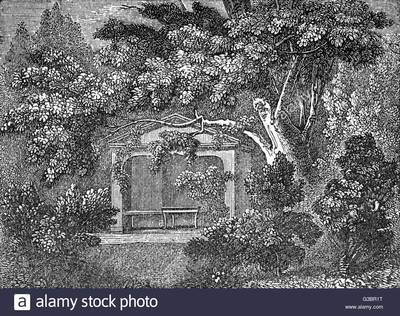|
Jacques-Pierre Brissot, Manon Roland’s close friend and republican ally, also visited England. Brissot was a lower-middle class provincial who trained as a lawyer, but came to Paris and decided to become instead a writer and journalist. One of his first jobs was for the Scotsman Samuel Swinton, the editor of the Courier de l’Europe which reported on English politics in several languages. Brissot was his French editor. It is in that capacity that he first travelled to England in 1779 at the age of 25. This first journey was short – two weeks – but it gave him a taste for England. This taste became more pronounced as the young writer came up against the stringent French censorship laws, and again when in 1782, he married Felicite Dupont, who translated English writers Goldsmith and Dodsley, and who had spent some of her childhood in London. The couple moved to London shortly after they married. Brissot, who was hoping to establish himself as a writer there was disappointed. As a foreigner, I was snubbed, he says, except by a few individuals, the principal one being Catharine Macaulay. Catharine Macaulay (1731-1791) was only fifty-one when Brissot met her. Yet, he describes her as a very old woman: Imagine a woman with lead on her face, missing teeth, wrinkles badly hidden with rouge, and whose decrepitude showed beneath her always fashionable and elegant get up. Next to her the brilliant figure and freshness and health of her husband, still an adolescent! It looked as if a child was hugging a corpse. Macaulay’s marriage to a twenty-five year old (hardly a teenager!) and good looking man had of course been badly received, and even Brissot, who admired her greatly and defends her against other accusations (such as that she was not the author of her own works) finds this difficult. But even then Brissot tries to dispel the calumnities by arguing that it was the family of her husband (his brother was some sort of medical innovator or quack) that was really objectionable. Macaulay’s most famous work was her History of England in eight volumes. Brissot thought that work remarkable, and beleived that she deserved the laurels she had taken from David Hume. To objections that she could not, as a woman, really be the author of that work, Brissot replied that the evidence that she was laid in her conversation: ‘It has all the characteristcs, he said, of the dignity, the republican energy breathed by her History.’
0 Comments
In 1784, Manon travelled to England with her husband who was to meet professional contacts there. They came by water, first taking a river boat from Amiens to Boulogne, and then a ship with ‘two rooms and six beds’ for a ten hours crossing to Dover. From there they made their way to London, stopping on the way as tourists would. Dover, by Thomas Girtin (1775-1802) Manon is very enthusiastic about what she sees. The English countryside is pretty! It’s clean! And it is welcoming to travellers, with walking paths readied and lands separated with 3-foot hedges rather then 12-foot walls as they are in France. In London she finds the Strand, with Somerset House nearly finished, to be a most beautiful avenue, and again, clean – even the market displays of fish and meat are tidy and appealing. St Paul’s cathedral is like nothing she has ever seen, and she loves Westminster, the Abbey and the Palace. The British Museum with its displays of insects, organized along the Linnaean classifications, and its display of Egyptians mummies is fascinating. The Rolands seat in during parliament, and hear Pitt the young and Fox arguing. They travel to Kew and see the gardens there – what a poor job they did of copying them at Ermenonville, where Rousseau is buried, she thinks. She is taken by how the women live. They are separate from the men – their domain is the home and they accept that their job is keep the house in order and the children clean. They do not gamble. They are also more modest – and cleaner! – than their French counterparts. They wear a scarf over their décolleté, and a bonnet or kerchief at all times. Young women are not shown in society till quite late, and they do not powder their till they are between 15 and 18. Unlike their brothers, they are not sent to schools – except for a few, but these are respectable schools – but their mothers teach them all they need to know. But mostly she is impressed by the air of liberty (and again cleanliness!) that she sees about her, whether in the landscape or the education of the young: Liberty and cleanliness: here are the two laws of early childhood. Children are washed, every day, from head to toe; they do as they wish, as long as they cause no harm. We would be surprised to see at the table of a Duke his children, aged 8 or 10, pushing their plates in front of them, putting their elbows on the table and resting their on their hand, or other such things. They do not pay attention to such trifles as they know that later, the child will notice that these things are not done, and will correct herself for the sake of their own well-being. From this method in general it follows that children are themselves in front of their parents, they do not feel embarassed by their presence, and their parents know them better. It also follows that children are more natural, free, and confident in their movement, their demeanor, which becomes permanently imprinted and suits well the pride of a republican and the independence of a man. |
About
This is where I live blog about my new book project, an intellectual biography of three French Revolutionary women philosophers. Categories
All
Archives
November 2022
|




 RSS Feed
RSS Feed